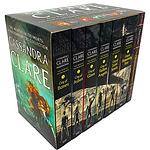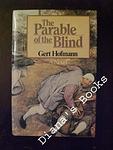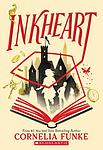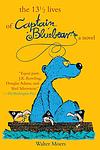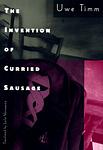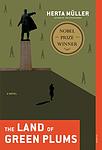The Greatest German, Austrian "Fiction" Books Since 1980
Click to learn how this list is calculated.
This list represents a comprehensive and trusted collection of the greatest books. Developed through a specialized algorithm, it brings together 300 'best of' book lists to form a definitive guide to the world's most acclaimed books. For those interested in how these books are chosen, additional details can be found on the rankings page.
Genres
Countries
Date Range
Reading Statistics
Click the button below to see how many of these books you've read!
Download
If you're interested in downloading this list as a CSV file for use in a spreadsheet application, you can easily do so by clicking the button below. Please note that to ensure a manageable file size and faster download, the CSV will include details for only the first 500 books.
Download-
1. Perfume by Patrick Suskind
Set in 18th-century France, this novel tells the story of Jean-Baptiste Grenouille, a man born with an extraordinary sense of smell but no personal scent of his own. He becomes an apprentice to a prominent perfumer and learns to create the world's most intoxicating perfumes. However, his obsession with capturing the perfect scent leads him down a dark path, as he begins to kill young women to extract their scent. The book is a chilling exploration of obsession, identity, and the power of scent.
-
2. Austerlitz by W. G. Sebald
The novel follows the story of Jacques Austerlitz, an architectural historian who was brought to England on a Kindertransport from Czechoslovakia during World War II. As an adult, Jacques embarks on a journey to uncover his past, including his original identity, his parent's fate, and his own lost history. The narrative is a haunting exploration of memory, identity, and the lasting impact of the Holocaust.
-
3. The Book Thief by Markus Zusak
Set in Nazi Germany during World War II, the novel follows the story of a young girl who finds solace in stealing books and sharing them with others. In the midst of the horrors of war, she forms a bond with a Jewish man her foster parents are hiding in their basement. The story is narrated by Death, offering a unique perspective on the atrocities and small acts of kindness during this period. The girl's love for books becomes a metaphor for resistance against the oppressive regime.
-
4. The Reader by Bernhard Schlink
"The Reader" is a poignant narrative centered around a young German boy's complex relationship with an older woman, who later turns out to be a former Auschwitz guard. Their relationship begins with her teaching him to read, but takes a drastic turn when she disappears, only to reemerge on trial for war crimes. The novel explores themes of guilt, shame, and redemption, as the boy, now a law student, grapples with his feelings for a woman he once loved, but whose past actions he cannot reconcile with.
-
5. The Rings of Saturn by W. G. Sebald
"The Rings of Saturn" is a richly detailed travelogue that follows the narrator's journey along the coast of Suffolk, England. The narrative weaves together history, literature, and personal anecdotes, exploring topics as diverse as the decline of the herring industry, the horrors of colonialism in the Congo, and the life of philosopher Sir Thomas Browne. The book is characterized by its melancholic tone, its digressive style, and its meditative reflections on memory, time, and decay.
-
6. The Piano Teacher by Elfriede Jelinek
"The Piano Teacher" is a dark exploration of power dynamics, sexuality, and repression. The story revolves around a piano teacher at a prestigious music school in Vienna who lives with her overbearing mother in a state of emotional and sexual repression. Her life takes a turn when she becomes sexually involved with a young, self-assured student. The relationship, marked by sadomasochistic games and emotional manipulation, spirals out of control, leading to a tragic end. The book is a profound critique of bourgeois values and the oppressive structures of society.
-
7. The Emigrants by Winfried Georg Sebald
"The Emigrants" is a novel that explores the experiences and memories of four different emigrants, each with a unique and complex history. The narrative primarily focuses on the psychological impact of displacement and the haunting nature of the past. The author delves deep into their lives, revealing their struggles with identity, loss, and the persistent influence of their roots. The narrative is interwoven with historical events, photographs, and other documents, creating a rich tapestry that blurs the line between fact and fiction.
-
8. Extinction by Thomas Bernhard
"Extinction" is a novel that explores the dark and complex themes of family, identity, and history through the eyes of its protagonist, a professor living in Rome. When he receives news of the deaths of his parents and brother in a car accident, he is forced to confront his past and his Austrian heritage. The narrative delves into his thoughts and feelings, his criticisms of his family and society, and his philosophical musings on life and death, all while he prepares to return to his family's estate for the funeral. The novel is renowned for its dense, stream-of-consciousness style and its unflinching examination of the human condition.
-
9. Concrete by Thomas Bernhard
The book is a darkly introspective narrative that delves into the mind of a reclusive, obsessive intellectual who is struggling to complete his scholarly work on the composer Mendelssohn. As he grapples with his own ailments and the perceived mediocrity of his surroundings, the protagonist's stream-of-consciousness monologue reveals his deep-seated anxieties, self-loathing, and profound isolation. The narrative is a relentless examination of the protagonist's psyche, showcasing his critical view of society and his own personal relationships, which are fraught with tension and dysfunction. Through this, the novel explores themes of artistic creation, intellectual elitism, and the suffocating nature of expectations and familial obligations.
-
10. Woodcutters by Thomas Bernhard
Woodcutters is a darkly humorous critique of Vienna's artistic elite. The story takes place over the course of a single evening, as the narrator attends a dinner party in honor of a recently successful actor. As the evening progresses, he reflects on the pretentiousness and hypocrisy of the guests, the mediocrity of their artistic achievements, and the tragic suicide of his former lover. The novel is a scathing indictment of the vanity and self-delusion of the artistic community.
-
11. Cassandra by Christa Wolf
The novel is a retelling of the Trojan War from the perspective of Cassandra, the doomed prophetess and daughter of Priam, the king of Troy. Through her eyes, we experience the final days of the legendary city and her own tragic fate. The narrative delves into themes of power, feminism, and the role of women in history and myth, as Cassandra reflects on her life, her prophetic gift that was both a blessing and a curse, and the events leading up to the city's downfall. Her internal monologue provides a poignant and introspective examination of human nature, war, and the often-unheard voices of women in the shadow of great historical narratives.
-
12. Couples, Passersby by Botho Strauß
"Couples, Passersby" is a collection of short stories that explore the complexities of human relationships and the subtleties of everyday life. The stories are set in various locations, from urban landscapes to rural settings, and feature a wide range of characters, from couples to solitary individuals, each grappling with their own internal struggles and external circumstances. The author's evocative prose and keen observations of human behavior offer a poignant and insightful look at the human condition.
-
13. Wittgenstein's Nephew by Thomas Bernhard
"Wittgenstein's Nephew" is a semi-autobiographical novel that explores the friendship between the narrator and his friend Paul, who is the nephew of the famous philosopher Ludwig Wittgenstein. The story takes place in Vienna and is set against the backdrop of the Austrian mental health system. The novel delves into themes of sanity, insanity, and the fine line that separates the two, while also offering a critique of Austrian society. It is a meditation on the nature of illness, both physical and mental, and the impact it has on personal relationships and one's perception of the world.
-
14. The Young Man by Botho Strauß
"The Young Man" is a philosophical novel that explores the transformation of a young man from a passive observer to an active participant in life. The protagonist, initially a detached observer of his own life and the world around him, is forced to confront his own existence and identity when he falls in love. The narrative delves into his introspective journey, his struggle with societal norms, his search for meaning and purpose, and his ultimate acceptance of his own individuality and humanity.
-
15. The Swarm by Frank Schatzing
"The Swarm" is a science fiction novel that explores the disastrous consequences of mankind's exploitation of the world's oceans. The narrative follows a group of scientists around the world as they try to understand a series of inexplicable, catastrophic natural disasters. They eventually discover that these events are not random but are the result of a collective intelligence in the sea, a swarm of marine life that has decided to fight back against humanity's destruction of their habitat. The book combines elements of ecological thriller, disaster novel, and speculative fiction as it explores the potential consequences of human interference with the natural world.
-
16. The Parable of the Blind by Gert Hofmann
"The Parable of the Blind" is a darkly comedic novel that follows six blind men who are hired to pose as models for a famous painter's depiction of a biblical parable. As they journey to the painter's studio, they struggle with their dependence on each other and the outside world, grappling with the limitations and challenges of their blindness. The narrative explores themes of human vulnerability, the nature of perception, and the absurdity of existence.
-
17. Inkheart by Cornelia Funke
The book revolves around a young girl named Meggie and her father Mo, who possesses a unique ability to bring characters from books to life by reading aloud. This gift, however, comes with a price, as they are entangled in a dangerous adventure when a villain from a fantasy book called "Inkheart" is accidentally summoned into the real world. As they struggle to fix the chaos caused by this crossover, they must navigate a treacherous world of magic and betrayal, while attempting to thwart the villain's sinister plans and protect the balance between reality and the fantastical realms of literature.
-
18. The Pigeon by Patrick Suskind
"The Pigeon" is a psychological drama about a man whose life is turned upside down by the presence of a pigeon in front of his apartment. The man, a meticulous and orderly bank security guard, has his life thrown into chaos when he encounters the bird, which triggers an existential crisis within him. The book explores themes of fear, isolation, and the fragility of human existence, as the protagonist grapples with his sudden and irrational fear of the pigeon.
-
19. The Afternoon of a Writer by Peter Handke
"The Afternoon of a Writer" is a contemplative exploration of a day in the life of a solitary writer who, after a successful morning of writing, decides to take a walk through an unnamed European city. As he strolls, he grapples with feelings of alienation and existential dread, questioning his purpose and the worth of his work. The book delves into the writer's inner struggles, his observations of the world around him, and his reflections on the act of writing itself.
-
20. The Last World by Christoph Ransmayr
"The Last World" is a novel that reimagines the exile of the Roman poet Ovid in a remote village at the edge of the Black Sea. The story is set in a mythical time and place, where the villagers are haunted by strange transformations and echoes of Ovid's metamorphoses. The novel blurs the lines between the real and the imaginary, the past and the present, and the world of the living and the dead, creating a surreal and dreamlike atmosphere.
-
21. Vertigo by W. G. Sebald
"Vertigo" is a complex narrative that combines elements of fiction, travelogue, biography, and autobiography. The novel is divided into four sections, each exploring the life and works of different historical figures such as Stendhal, Kafka, and Casanova, as well as the author's own experiences. The narrative is characterized by its exploration of themes such as memory, identity, and the past, often blurring the lines between fact and fiction. The book is also notable for its distinctive style, featuring long, meandering sentences and a lack of traditional plot structure.
-
22. The 13 1/2 Lives Of Captain Bluebear by Walter Moers
The book is a whimsical fantasy novel that follows the adventures of a blue bear as he navigates a world filled with bizarre creatures and surreal landscapes. With half a life more than the usual allotment for his species, the protagonist recounts his experiences, which range from being raised by mini-pygmies to attending an academy for gifted creatures, and from escaping the clutches of a carnivorous island to befriending a sentient tornado. Each of his thirteen and a half lives is a unique tale of curiosity, learning, and survival, set in a richly imagined universe that defies the ordinary at every turn.
-
23. The Invention of Curried Sausage by Uwe Timm
The book is a fictional account of the creation of the popular German fast food, curried sausage. The story unfolds through the narration of a young journalist who visits an elderly woman, believed to be the inventor of the dish during World War II. It explores the woman's tumultuous love affair with a young sailor during the chaotic final days of the war, her struggle for survival, and the circumstances that led to the creation of the spicy sausage. The novel is a blend of romance, war-time survival, and culinary innovation.
-
24. Lust by Elfriede Jelinek
This book is a provocative exploration of the dynamics of power and desire within the confines of a loveless marriage. Set against the backdrop of the Austrian Alps, it delves into the life of a woman trapped in a relationship with her abusive and unfaithful husband, a powerful paper mill owner. The narrative dissects the commodification of sex, the objectification of women, and the societal structures that perpetuate these themes. Through a stark and unflinching examination of the protagonist's degradation and the pervasive corruption in her world, the novel presents a scathing critique of consumerism, the patriarchy, and the hollow nature of modern relationships.
-
25. The Land Of Green Plums by Herta Müller
The novel is a poignant exploration of life under a repressive regime, following a group of young friends in Romania during the totalitarian rule of Nicolae Ceaușescu. Through the eyes of the narrator, a young woman with aspirations of freedom and self-expression, the story delves into the oppressive atmosphere of surveillance, fear, and betrayal that permeates their existence. As they struggle to maintain their integrity and hope amidst the dehumanizing forces of the state, the friends are inexorably drawn towards tragic outcomes, illustrating the devastating impact of living under constant oppression and the indomitable spirit that resists it.
Reading Statistics
Click the button below to see how many of these books you've read!
Download
If you're interested in downloading this list as a CSV file for use in a spreadsheet application, you can easily do so by clicking the button below. Please note that to ensure a manageable file size and faster download, the CSV will include details for only the first 500 books.
Download









